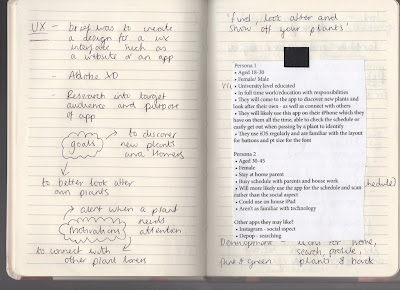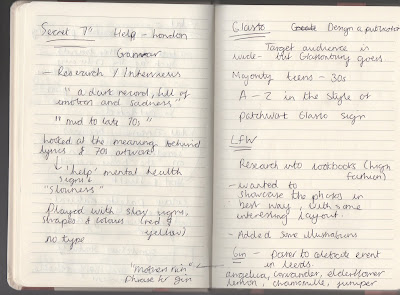Neal Fletcher is a freelance front and back end developer, designer and founder of independent type foundry Cliff Type. Currently based in Liverpool, UK.
Education
- BA First Class Honours: Graphic Design UCLan, 2008 – 2012
Experience
- Freelance Designer & Developer March 2016 – Present
- SB Studio (Designer & Lead Developer) October 2012 – February 2016
- Thomas Matthews (Freelance) April 2012
- Mind Design (Freelance) January 2012
- Mind Design (Intern) July – August 2011
- Ziggurat Brands (Intern) May – July 2011
- Peter & Paul (Freelance) April 2011
- Because Studio (Intern) March – April 2011
- Cultivate Creative (Intern) February – March 2011
- SB Studio (Intern) August – December 2010
- Uniform (Intern) June – July 2010
Workshops
- Type Design Workshop January 2012
- University of Applied Sciences Düsseldorf, Germany
Featured, Print
- Chanced Arm 2016
- PAGE Magazine, Germany 2016
- Boxed & Labelled Two (Gestalten) 2011
- Package 03 (Choi) 2011
- BEAM (Victionary) 2011
- Grafik Issue 192 2011
- Wallpaper* Issue 142 2010
- Eight:48 Issue 3 2010
- Featured, Web
FormFiftyFive
- Grafik
- Collate
- It’s Nice That
- Site Inspire
- The Gallery
- Creative Review
- They Made This
- People of Print
- AIGA
- Wallpaper Graduate Directory 2011
After leaving Liverpool’s SB Studio as lead developer in 2016, Neal Fletcher packed his bags and headed straight for an Italian farmhouse with “intermittent 3G”. Over the next year, he was able to launch a freelance career building websites for UK-based clients, completing over 40 in that time. Now back home and working from a space in Liverpool’s Georgian Quarter, he tells us how his collaborative process with agencies rolls out – sending up to 82 emails in a day – and how he’s planning to expand his own digital practice, Cliff Studio.
Day-to-Day
How would you describe what you do?
I work on a freelance basis with design studios and branding agencies to provide front- and back-end development for client projects. Clients span arts, culture, luxury retail and hospitality sectors, and have previously included the Martin Parr Foundation, Polpo restaurants, David Hockney, design consultancy Ekkist and Susan Foster jewellery.
My day-to-day work includes constant communication with agencies – the most emails sent in a day currently stands at 82! This includes providing creative input and support on the web design process, managing freelancers, not enough coding (!) and a lot of the dry admin that comes with running your own business.
What does a typical working day look like and where does it happen?
Last summer, I took on a small office space in Liverpool’s Georgian Quarter to get a better work/life balance. After leaving my full-time job, my partner and I moved to Italy for a year where we did housesitting. Essentially we looked after someone’s second home and lived there rent-free in return, so I was able to establish my freelance career out there, working remotely.
We were living in a five-bedroom farmhouse on top of a hill with no internet connection and very little signal. I have no idea how I launched a business making websites with intermittent 3G (not even 4G!) but there you go. I think I built over 40 websites in that first year from a bedroom-turned-office with terracotta tile flooring and the shutters constantly closed to keep the 40-degree heat out.
“I once built a website on a long drive between Puglia and northern Italy.”
How collaborative is your role?
Working on a freelance basis with designers means it’s an intrinsically collaborative process. A lot of clients come to me because of my background in design, so they want my input throughout the process. I reckon it’s the attention to detail and appreciation of design elements, such as grid systems and pixel-perfect type setting, that helps me win more jobs over more traditional developers.
What are the most and least enjoyable aspects of your job?
The least enjoyable stuff is all admin-related – chasing overdue invoices, etc. But it’s worth it for the good bits – I love having ownership over my work and shouting about it, being in the lucky position of being able to pick and choose the projects I want to work on, and working with such talented designers at incredible studios around the world.
I also don’t take for granted the ability to work remotely. I join my partner on her work trips and can literally work on the road – I built a website on a long drive between Puglia and northern Italy once. Obviously I wasn’t driving!
What’s been the most exciting project of the last twelve months?
I really enjoyed working with the guys at Forty Eight Point One on the Polpo restaurant website this year. It was a challenging build, integrating unusual page transitions and a live booking system, but the site design was on point and the end product looks great.
What skills would you say are essential to your job?
Patience, attention to detail, perfectionism, multitasking, a understanding of the design process, open communication. Then of course the hard skills of coding languages and technical knowledge. I taught myself those things – I studied graphic design, worked as a junior designer for a year, and spent my evenings learning code. My role then transitioned from designer to developer quite organically, as more digital projects were put my way.
What do you like about working in Liverpool?
Mostly that I’ve always loved the city. There’s a friendly, laid-back vibe, great places to eat and drink, and beautiful architecture. Scousers always go the extra mile to help each other out, and it’s a really affordable place to live and work, and only two hours from London on the train. My office is within walking distance of home, and in a really nice part of town.
Are you currently working on any personal projects?
I’ve always loved type design, and have collaborated on several commercial typefaces on a freelance basis. I’ve been working on my own typefaces for almost three years now, with a view to opening my own type foundry, but it’s always taken a back seat. It could be a nice little side hustle if it’s a success.
What tools do you use most for your work?
Full Adobe suite (InDesign, Illustrator, Photoshop, XD); Coda; Sketch; Apple Mail for emails, a combination of Basecamp, Slack and Invision for project management. Then Dropbox for storage and collaboration.
My to-do lists have recently moved from pen and paper to Todoist, which I’m finding easier and it breaks down my lists into days and weeks, so my schedule is now split between iCal and Todoist. Skype and FaceTime for client calls.
How I Got Here
What did you want to be growing up?
All through primary school I wanted to be an archeologist. Ambitions as a games tester, architect and illustrator made an appearance a bit later on. I guess it’s careful, detailed work that has always appealed.
How do you think your upbringing influenced your choice of career?
It didn’t at all. I come from a family of tradesmen in an industrial town in northern England, where going to art school was a bit of an alien concept. Having said that, I’ve grown up around music – my parents have a huge collection and have always taken me to gigs, and I always loved the design of album covers. That’s what inspired me to do art and then graphic design at uni, I think!
How useful have your studies been in your career?
The graphic design course at Preston was a great lesson in design thinking. We did a lot of ideas-based projects – I thought it was a really good, hefty course. The placement year was really useful, and definitely led to my full time job, which at that time was as a junior designer, after graduating. I know there are other routes into graphic design now, but this one worked for me and I wouldn’t change anything
What were your first steps after graduating?
I had a portfolio site while I was at uni, and was building a profile on networks like Cargo Collective and Behance. I got on Wallpaper’s Graduate Directory for a packaging project, and a typeface I created with a website got a lot of press. I think those things really helped my profile. I then emailed lots and lots of studios after graduating until I landed my first job at the studio I actually interned at during my placement year.
Was there an early project that particularly helped your development?
In terms of helping my development as a freelance developer, having my work featured on sites like Site Inspire is by far the most fruitful.
Aside from that, I’ve just spent years and years building a network of people that support and help one another with anything from sending over a font to recommending freelancers. I don’t think I would have quit my job without those contacts, many of whom gave me work in my first few months. So it’s not so much luck as groundwork.
What’s been your biggest challenge along the way?
I’ve learnt a lot of things, and most of them the hard way. Keeping communication open is key – I try to make sure I’m never chased, and always send that email first if I’m running behind.
The hardest thing I’ve learnt is that the jobs that are favours are impossible to manage. I’ve lost friendships and clients over low or no-budget jobs because I can’t prioritise them over paid work. Then I’m not being paid, they are left waiting – it’s lose-lose. It’s sad, as I always want to help people out, but I can’t take on projects like that anymore. I prefer skill swaps – it’s a much more productive and two-way process.
Not being paid on time is always a massive source of stress as well, especially in the beginning. I moan about this a lot on Twitter, but to be fair most of my clients are absolutely brilliant with this stuff and settle up quickly. I’ve learnt that a lot of it is my own fault. I now know the importance of deposits, payment plans, contracts and having everything in writing!
Thinking Ahead
What would you like to do next?
I’m currently transitioning from working as a freelancer to becoming a digital studio under a different name. I’ve named it after my late Grandad, Cliff. I hope to employ someone this year; I’m after a developer with a design background, and maybe a project manager.
Could you do this job forever?
Yes! Perhaps not as hands-on in terms of client comms, but I still love coding and always get excited about a new project. Every week brings a different project, so it never gets boring.
Words of Wisdom
What advice would you give to an emerging creative wanting to become a developer?
Work hard on building a profile and getting press. This is so easily done on Twitter, and there are great website-building tools if you can’t code. Just get your work out there and don’t be afraid to self-promote.
I didn't receive a response from Neal, but I plan to reach out to him again once I have started learning how to code.




























































